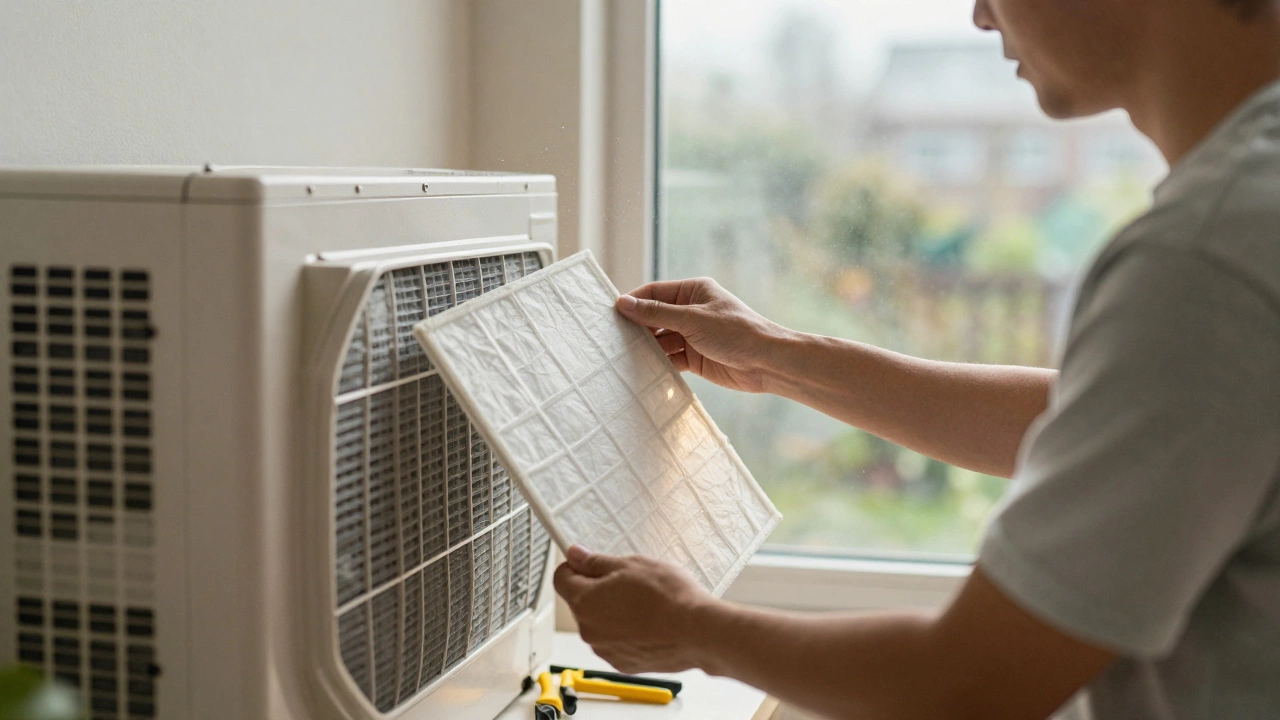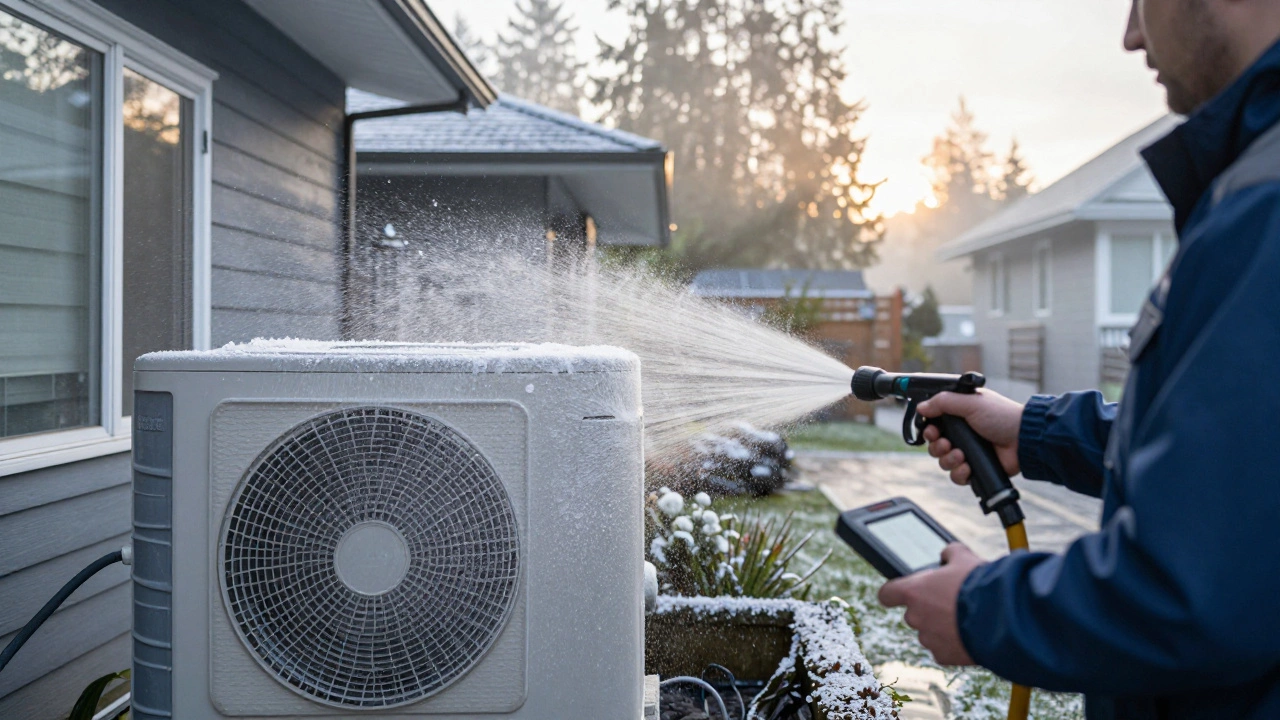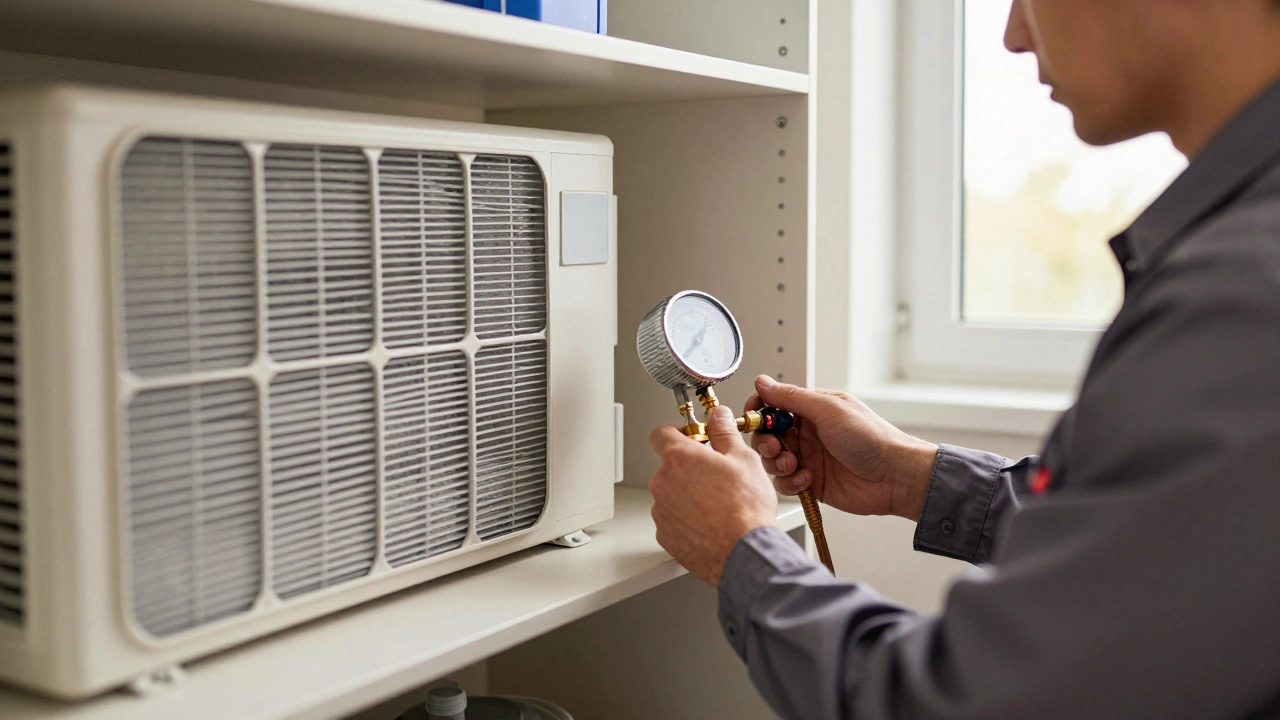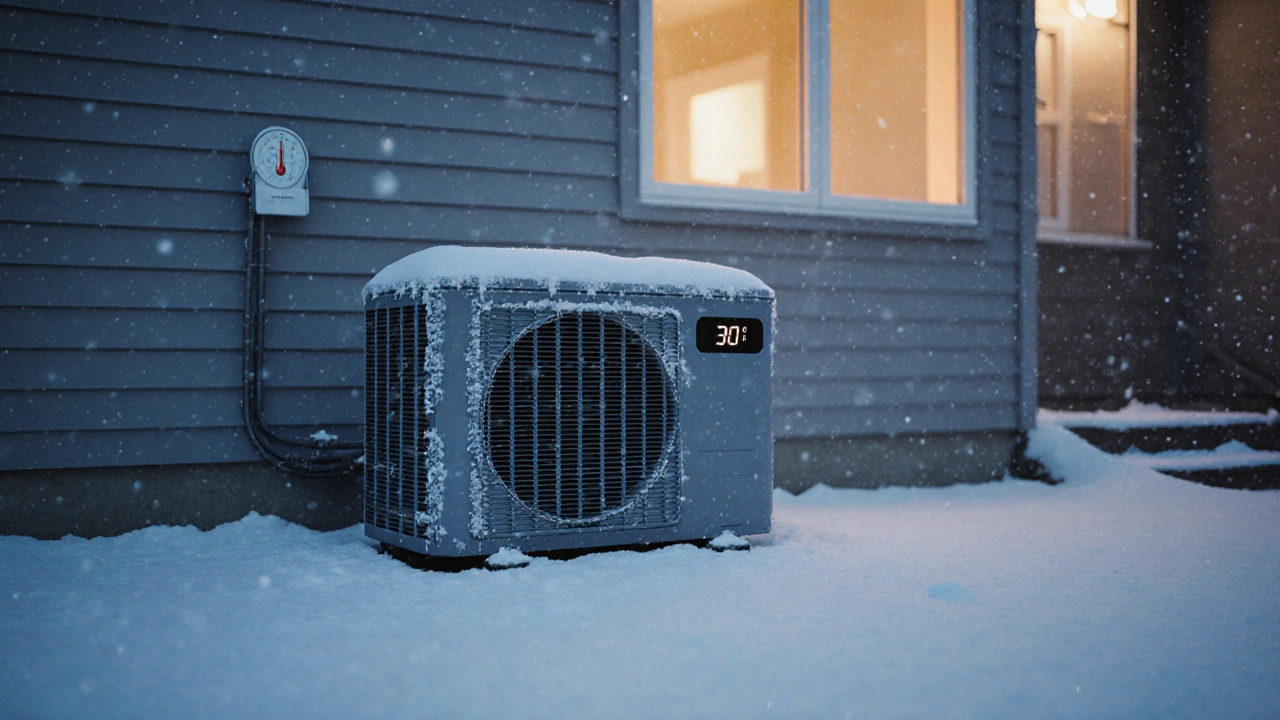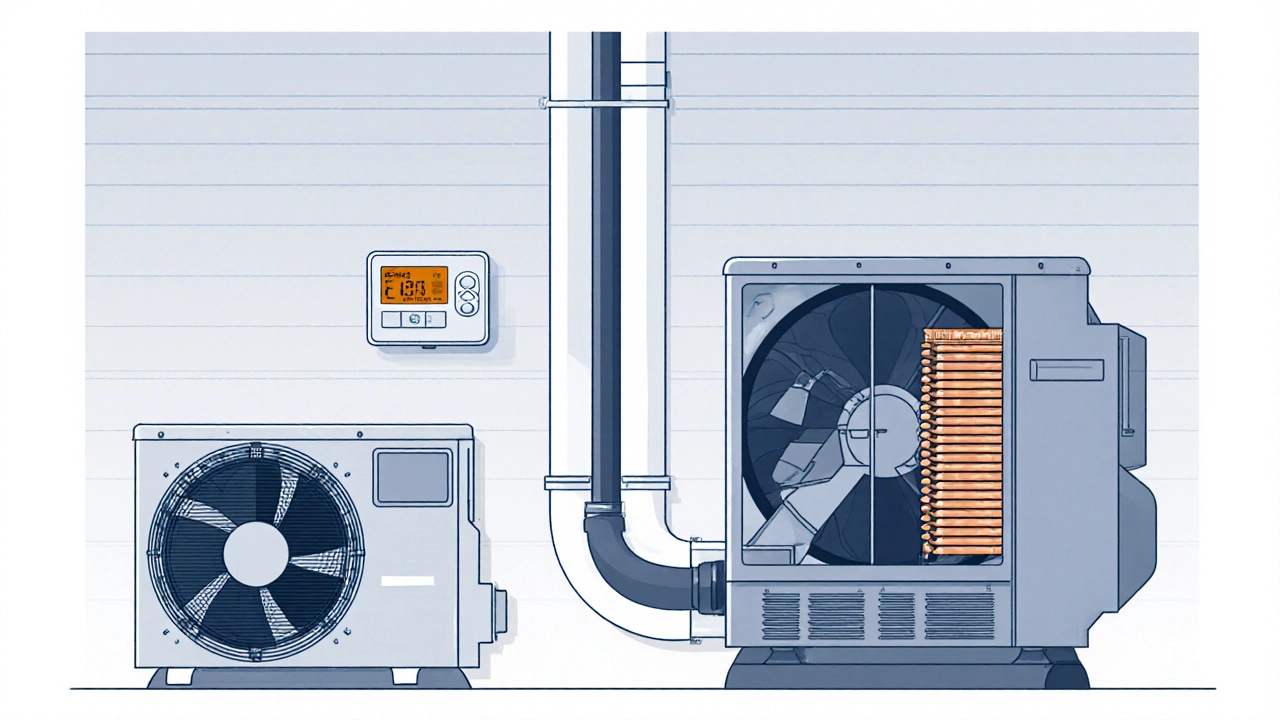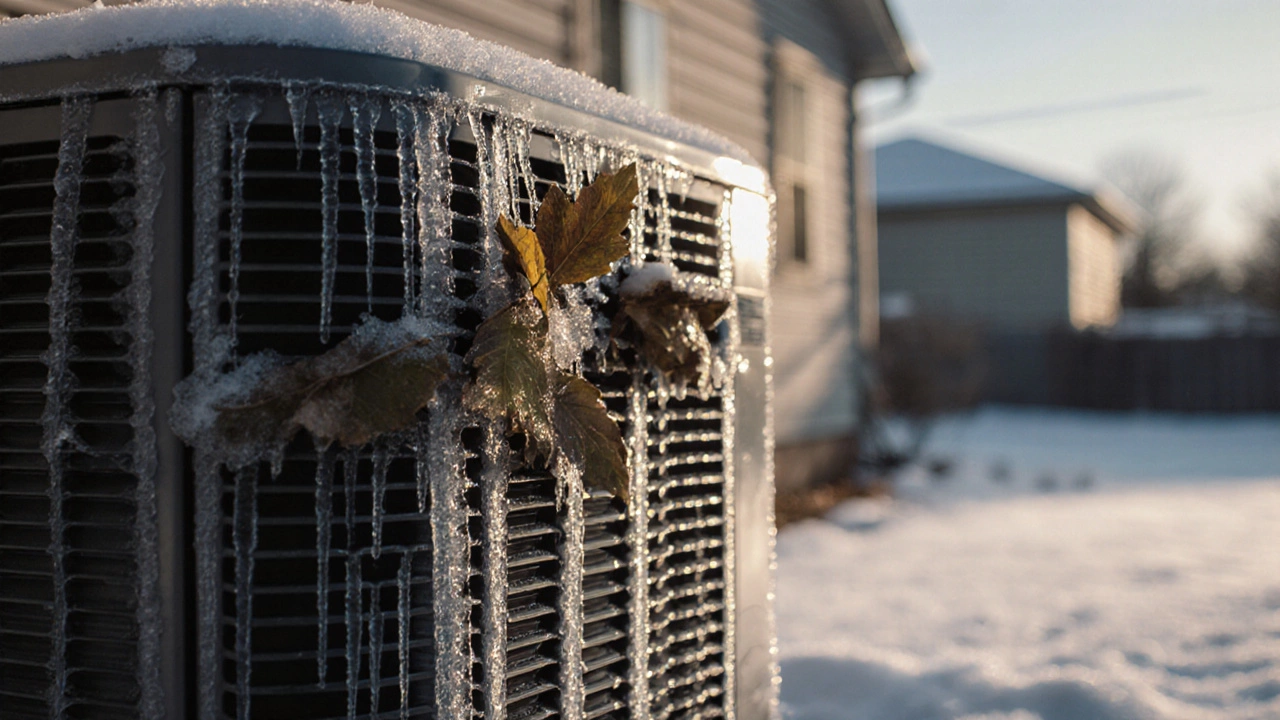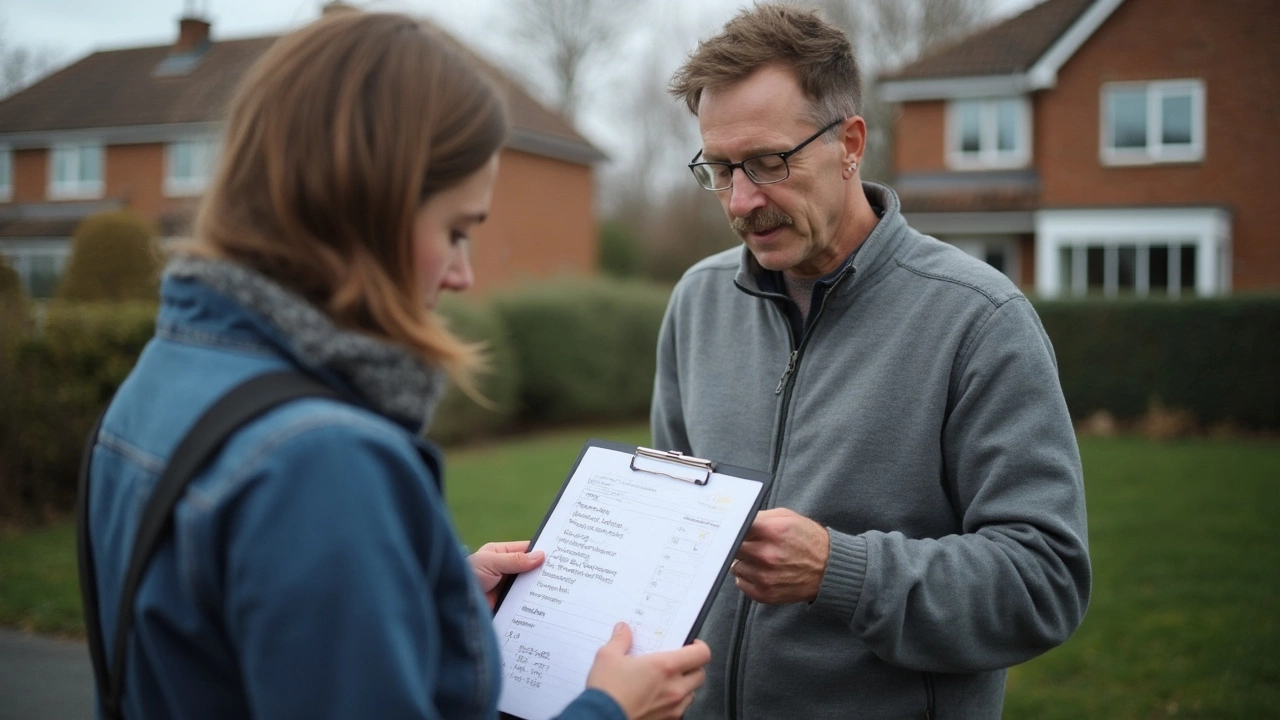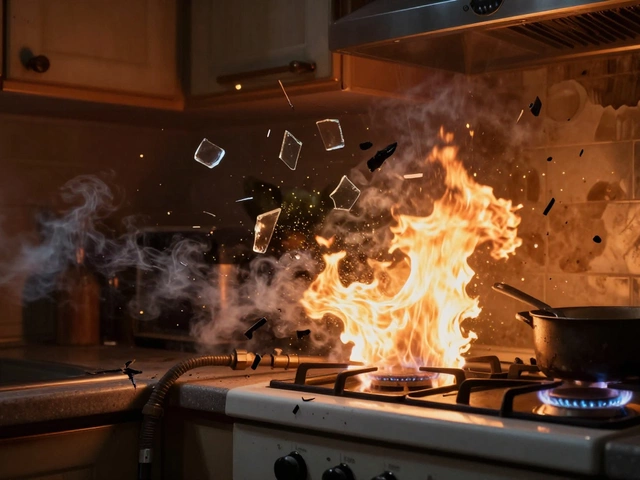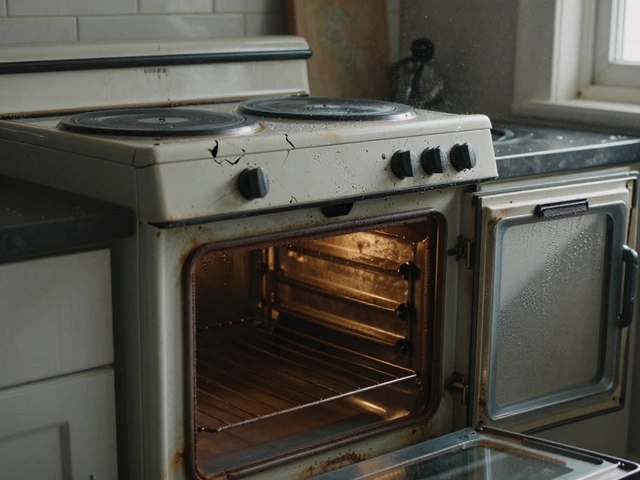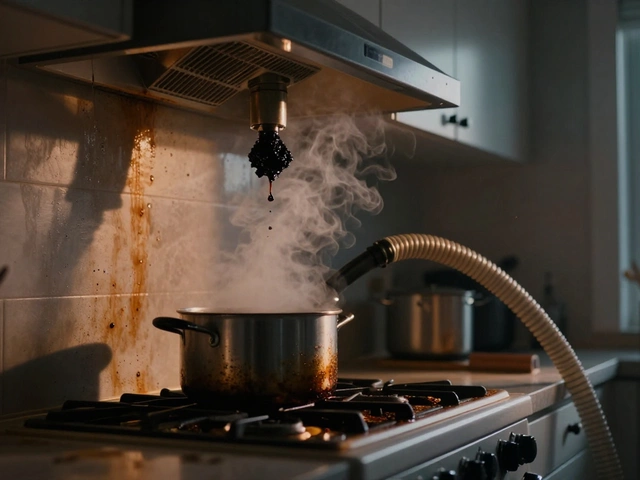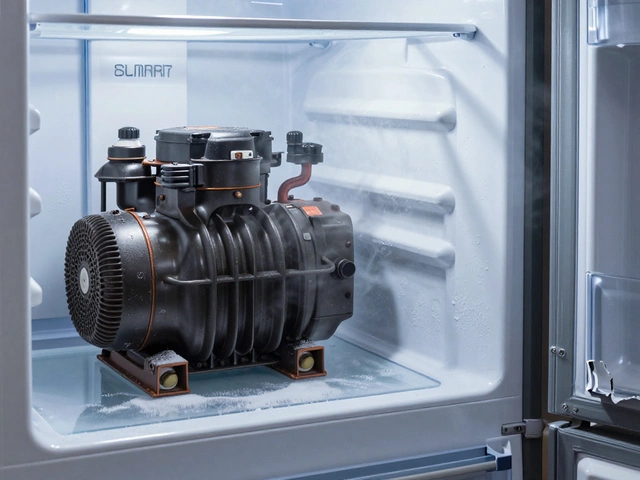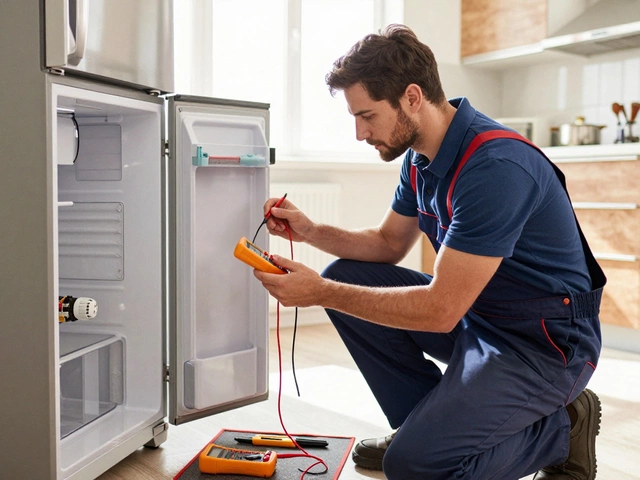HVAC Repair – Fast, Honest Help for Your Home
When your heating or cooling system breaks down, it feels like the whole house stops working. That's why we focus on getting your HVAC back up and running without the usual hassle. Our technicians know the common weak spots in heat pumps, furnaces, and air conditioners, and we keep a stocked van so we can fix most issues on the first visit. No hidden fees, no endless waiting—just a straightforward repair that gets your comfort back.
Heat Pump Compressor Costs – What to Expect
The compressor is the heart of a heat pump, and when it fails, the price tag can surprise you. A basic replacement part can start around £300, but once you add labor, taxes, and any needed refrigerant, the total often lands between £600 and £1,200. The exact cost depends on the model, the age of the unit, and whether you need a brand‑new compressor or a refurbished one. Older systems sometimes require upgrades to meet current efficiency standards, which can push the bill higher.
Before you sign off on a repair, ask the technician for a detailed quote that breaks down parts, labor, and any extra fees. It’s also worth checking if your warranty or home insurance covers part of the expense. If the repair cost is close to half the price of a new heat pump, it might be smarter to replace the whole system—especially if your unit is over 10 years old.
Here are a couple of quick ways to keep costs down: make sure the unit is cleaned regularly, replace filters every 1‑3 months, and schedule a yearly check‑up. A clean system runs cooler, putting less strain on the compressor and extending its life. Small preventative steps can save you hundreds in the long run.
Why Your Heat Pump Isn’t Cooling – Quick Fixes
If the heat pump runs but the house stays warm, you’re probably dealing with one of three common culprits: low refrigerant, a dirty air filter, or a blocked outdoor coil. Low refrigerant usually means there’s a leak, which requires a professional to locate and repair before refilling. Trying to top it up yourself can be dangerous and often violates local regulations.
First, check the indoor filter. A clogged filter reduces airflow, making the system work harder and limiting cooling. Swap it out for a fresh one; it’s an easy fix that takes under five minutes. Next, inspect the outdoor unit. Leaves, dust, or debris can coat the coil and stop heat exchange. A quick vacuum or garden hose rinse can clear the blockage, but be gentle to avoid bending fins.
If those steps don’t bring the chill back, the thermostat might be set incorrectly or need a new battery. Some models have a “heat mode” lock that overrides cooling—double‑check the settings. When basic troubleshooting fails, it’s time to call a pro. A qualified technician can test pressure levels, examine electrical components, and ensure your system is safe to run.
Remember, regular maintenance is the best insurance against cooling problems. A yearly service check can spot issues before they become costly breakdowns.
Whether you’re facing a pricey compressor swap or a heat pump that just won’t cool, Weymouth Appliance Repair Services has the know‑how to fix it right. Give us a call, and we’ll get your home comfortable again—fast, affordable, and with a clear price up front.
Can You Repair a Heat Pump? Here’s What Actually Works
- Alden Wilder
- Feb 22 2026
- 0 Comments
Learn whether you can repair a heat pump yourself or if you need a professional. Discover common issues, DIY fixes, when to replace, and how to avoid costly mistakes.
View MoreAre Heat Pumps Expensive to Fix? Real Costs and Common Problems
- Alden Wilder
- Dec 29 2025
- 0 Comments
Heat pump repairs are often cheaper than people think. Learn the real costs, common fixes, and when to replace instead of repair-based on real data from Vancouver homeowners.
View MoreWhat Is the Average Lifespan of a Heat Pump?
- Alden Wilder
- Dec 14 2025
- 0 Comments
The average lifespan of a heat pump is 15 years, but with proper maintenance, it can last up to 20. Learn what affects longevity, signs of failure, and when to replace your unit.
View MoreWhen Does a Heat Pump Lose Efficiency? Temperature Limits Explained
- Alden Wilder
- Oct 22 2025
- 0 Comments
Learn the temperature thresholds where heat pumps lose efficiency, how different models compare, and practical tips to keep them running smoothly in cold weather.
View MoreHow to Spot a Heat Pump Malfunction - Simple DIY Checks
- Alden Wilder
- Oct 12 2025
- 0 Comments
Learn how to spot a heat pump malfunction with simple DIY checks, understand warning signs, run basic diagnostics, and know when to call a professional.
View MoreMost Common Heat Pump Problem and How to Fix It
- Alden Wilder
- Oct 8 2025
- 0 Comments
Learn why ice buildup on the outdoor coil is the most common heat pump problem, how to diagnose it, and when to DIY or call a pro.
View MoreCompressor Cost for a Heat Pump: What’s the Real Price?
- Alden Wilder
- May 1 2025
- 0 Comments
Wondering how much it costs to replace a compressor in your heat pump? This guide breaks down real prices, from simple part swaps to complete upgrades. You’ll see what impacts the final bill, plus learn a few tricks to save money. Spot fake bargains and learn when a repair makes sense—or when it’s smarter to replace the whole system. Stay prepared before getting stuck with an expensive repair surprise.
View MoreTroubleshooting Heat Pump Issues Without Cooling Effectively
- Alden Wilder
- Jan 17 2025
- 0 Comments
When a heat pump runs but fails to cool, it can be a source of frustration and discomfort, especially on warm days. Understanding common causes such as refrigerant leaks, thermostat issues, or blockage in airflow can help in diagnosing the problem. This guide explores potential reasons behind such issues, offers troubleshooting tips, and explains when it might be best to call in a professional. With a few checks and the right knowledge, homeowners can address some of these challenges themselves.
View More